|
|
|
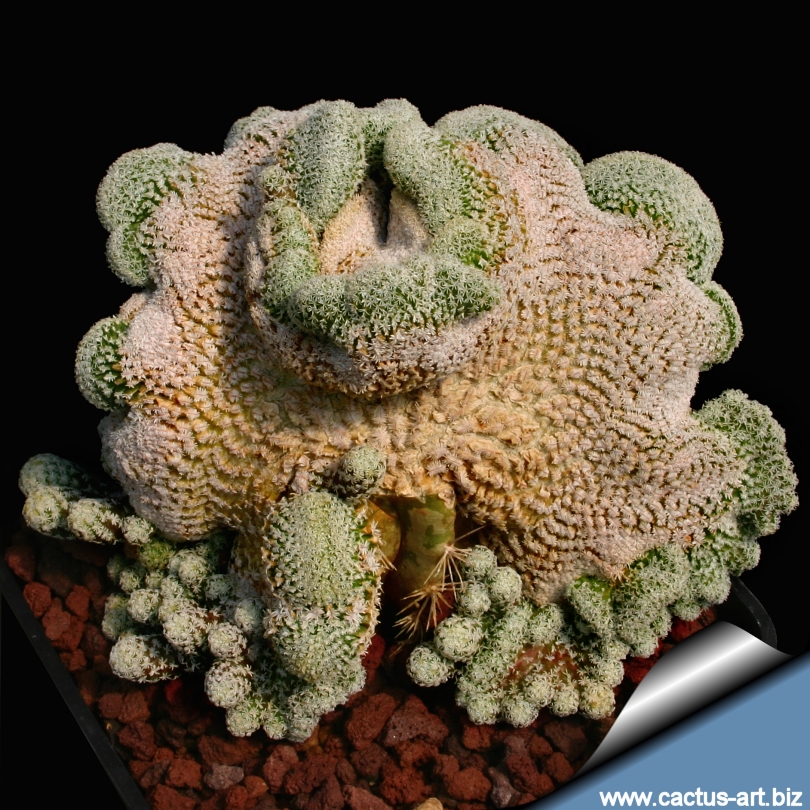
Mammillaria pectinifera forma cristata (Thin
crested form)
|
|
Description: The standard
M.
pectinifera is a well known small
cactus that appears above the ground as a squat, spherical stem, completely covered by
pectinate (comb-like),
flattened spines. It stay usually solitary. In cultivation the plant's
stem may be
cylindrical, and it
will eventually produce clustering off-shoots
with age.
Crested forms: This plant has different crested form some very
thin and other wide and strong.
Spines:
20-40,
pectinate (comb-like),
flattened against the body, fine, numerous, white, 1.5 - 2 mm long.
Lacking
central spines.
Flower:
Medium-sized in a ring around the sides of the globe, white to pink
with darker
mid-strip, 20-30 mm long and also in diameter.
Stigmas are green. The crested
plants usually do not flower, thought some flowers will be sporadically
produced on the wide crested form.
|
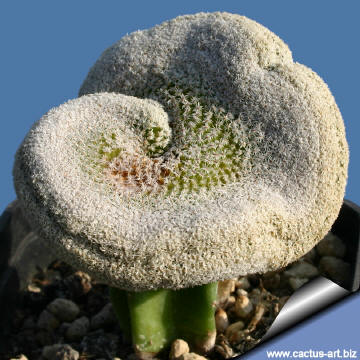 |
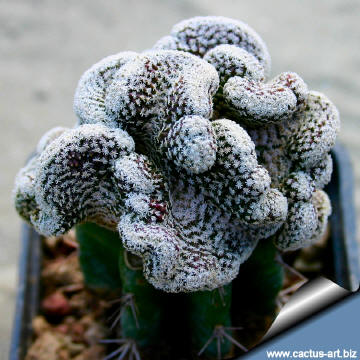 |
|
|
|
|
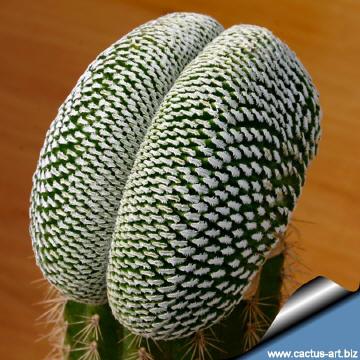
Wide crested from.
|
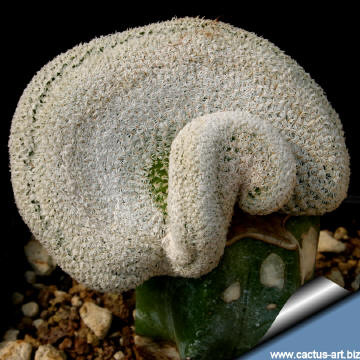
Thin crested form.
|
|
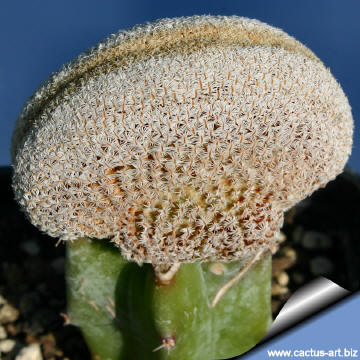 |
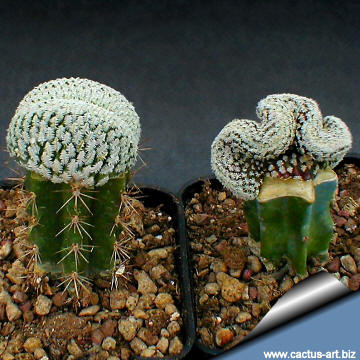 |
|
Advertising
|
|
|
|
|
Family:
Cactaceae
(Cactus Family)
Scientific Name:
Mammillaria pectinifera
forma cristata
Conservation status: Listed in
CITES appendix
Origin:
Garden origin
(Nursery produced cultivar)
Synonyms:
- Solisia pectinata fa
cristata
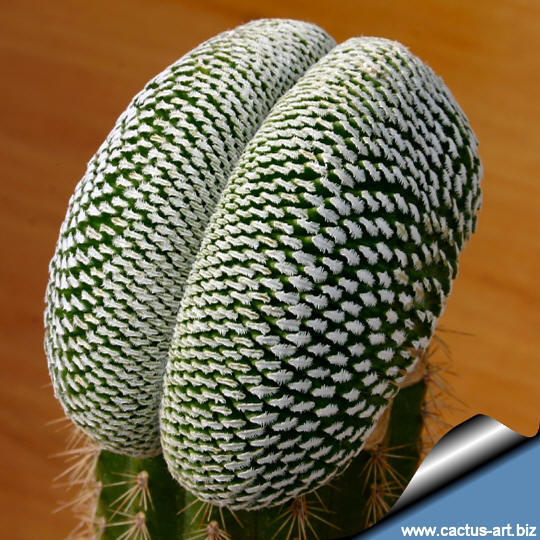
Wide crested form
|
|
|
|
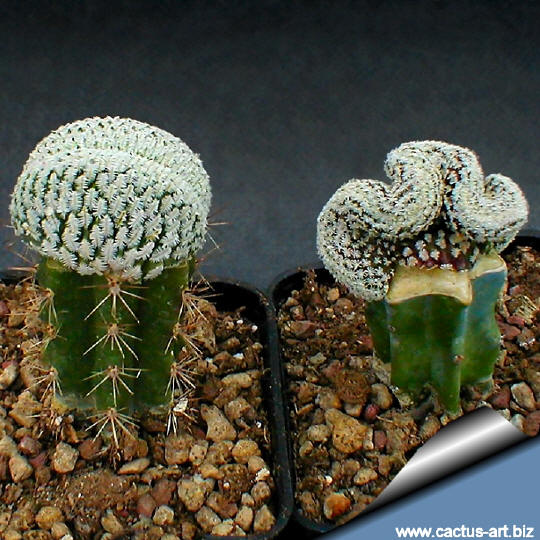
This plant forms very nice crests, Wide and narrow
form are both very
The
cause of cresting: The cause of cresting is not fully explained, biologists
disagree as to why some plant grow in this unusual form. Some
speculate that it is a genetic mutation. Others say it is the result of
a lightning strike or freeze damage, but whatever the stimulus, the
growth point of the stem has switched from a geometric point, to a line,
which folds and undulates as the crest expands. Though these crested
cacti are somewhat rare (1 in 50,000 or less), cresting occurs naturally
and can be encountered in many
other cactus species.
Culture: Mammillaria pectinifera cristata grow slowly and are
cold intolerant, make sure that your crest are not exposed to
freezing temperatures. It need a well drained soil mix. Water regularly
in summer but allow to dry fully before watering again. During the
winter months they should be rather kept dry. Repotting should be done every other year or when the
plant has outgrown its pot.
Sun Exposure: They like
full sun, but some
summer shade in the hottest hours of the day is beneficial.
Propagation: Grafting since cutting root hardly.
Photo of conspecific taxa, varieties, forms and
cultivars of
Mammillaria pectinifera:

 |
|